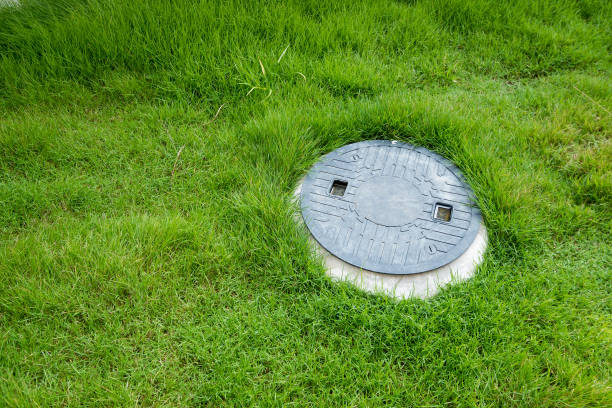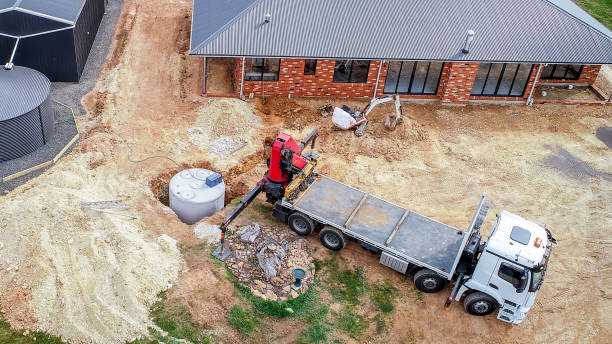
Signs It’s Time to Call a Septic Repair Company
Understanding when to call a septic repair company can save homeowners from costly repairs and serious infrastructure damage. This article outlines the key signs that suggest it’s time to seek professional help, helping you maintain a healthy septic system. With proper knowledge and timely action, you can effectively manage and extend the life of your septic system. Learning how a septic tank works is crucial for homeowners to identify issues early and avoid expensive problems.
Common Warning Signs of Septic System Failure
Unpleasant Odors
One of the first indicators is a foul smell emanating from your drains or near the septic tank area. These odors can signify a buildup of waste or a backup in the system, which might be due to a malfunctioning component. Ignoring these smells can lead to severe issues, including environmental hazards and property damage.
The presence of unpleasant odors can also be attributed to the escape of methane gas, which is produced by the natural breakdown of waste. This gas can pose a health risk if it accumulates in indoor spaces, making prompt action essential. A septic repair company can help identify the source of the odor and recommend solutions to mitigate any potential risks.
Persistent odors should be considered a serious red flag, indicating the need for a professional evaluation. Regular maintenance and timely inspections can help catch this issue early, preventing more costly repairs down the road. By understanding these warning signs, homeowners can ensure the longevity and efficiency of their septic systems.
Slow Drains
Another common symptom is drains in your home becoming sluggish, leading to water backing up in sinks and showers. Slow drains are often a sign of blockages within the plumbing or septic system, suggesting that it’s time to call a septic repair service. Addressing slow drains promptly can prevent further complications, such as system overflows or pipe damage.
This issue can arise from the accumulation of waste materials or a faulty system component not processing wastewater efficiently. Ignoring slow drains can lead to more severe blockages, resulting in costly repairs and damaged plumbing fixtures. A professional can diagnose the root cause and provide solutions to restore the system’s functionality.
Regular monitoring and maintenance of your plumbing systems can help identify issues before they escalate. Implementing preventive measures, such as using enzyme-based cleaners periodically, can also aid in maintaining optimal drain functionality. By addressing slow drains promptly, homeowners can safeguard the integrity of their septic systems effectively.
How Often a Septic System Should be Inspected or Pumped
Inspection Frequency
Regular inspections should be scheduled every 1-3 years to ensure all components are functioning correctly. Inspections can identify potential issues such as cracks in the tank, faulty drainage fields, or clogs in the system. By adhering to a set inspection frequency, homeowners can prevent unexpected failures and costly repairs.
An experienced professional can thoroughly evaluate the health of your septic system, providing insights into its efficiency and performance. Timely inspections can also help in planning for potential upgrades or replacements if components are nearing the end of their lifespan. Understanding the inspection frequency and adhering to it can save homeowners from unexpected septic system failures.
Pumping Schedule
The septic tank should typically be pumped every 3-5 years, depending on the size of the tank and household usage. Regular pumping prevents solids from accumulating and reaching the drain field, thus preventing blockages and potential system failure. Homeowners should also be aware of signs of a full septic tank, such as slow drains, gurgling sounds, and sewage backups, to know when pumping is urgently needed. Understanding the ideal pumping schedule can greatly influence the longevity and performance of your septic system.
Ignoring the need for regular pumping can result in sewage backups, environmental contamination, and costly repairs. Tailoring the pump schedule to the specifics of your home, such as the number of occupants and water usage, allows for effective waste management. Experts can assess your septic system to recommend an optimal pumping schedule that suits your household’s needs.
What Homeowners Do to Prevent Septic System Issues Before Calling a Repair Service
Proper Waste Disposal
Disposing of waste responsibly and avoiding flushing non-biodegradable materials can prevent blockages. Items such as wipes, feminine hygiene products, and cooking oils can cause significant harm to a septic system if not disposed of properly. Educating household members on proper waste disposal techniques is an effective measure in preventing septic system issues.
Homeowners can prevent blockages by installing strainers in drains to catch debris and encouraging the use of biodegradable products. Regularly cleaning the strainers and avoiding the disposal of harmful chemicals down the drain can preserve the health of the septic system. Practicing responsible waste disposal significantly reduces the need for frequent repairs or interventions.
Water Conservation
Implementing water-saving measures helps reduce the load on the septic system, preventing overstrain. Simple practices such as fixing leaks, installing water-saving fixtures, and reducing water usage can contribute significantly to the system’s efficiency. Water conservation is not only beneficial for the septic system but also promotes environmental sustainability.
Strategically reducing water consumption can prevent the system from becoming overloaded and failing prematurely. By understanding the impact of individual water usage patterns, households can adjust behaviors and avoid excessive water discharge. Professional advice may offer additional insights into advanced conservation techniques tailored for specific systems.
Regular maintenance and awareness of potential issues are key to extending the life of your septic system. By recognizing the warning signs and following recommended preventive measures, homeowners can avoid the need for emergency septic repair services. If any concerning symptoms arise, it’s important to contact a septic repair company promptly to assess and address any issues.


